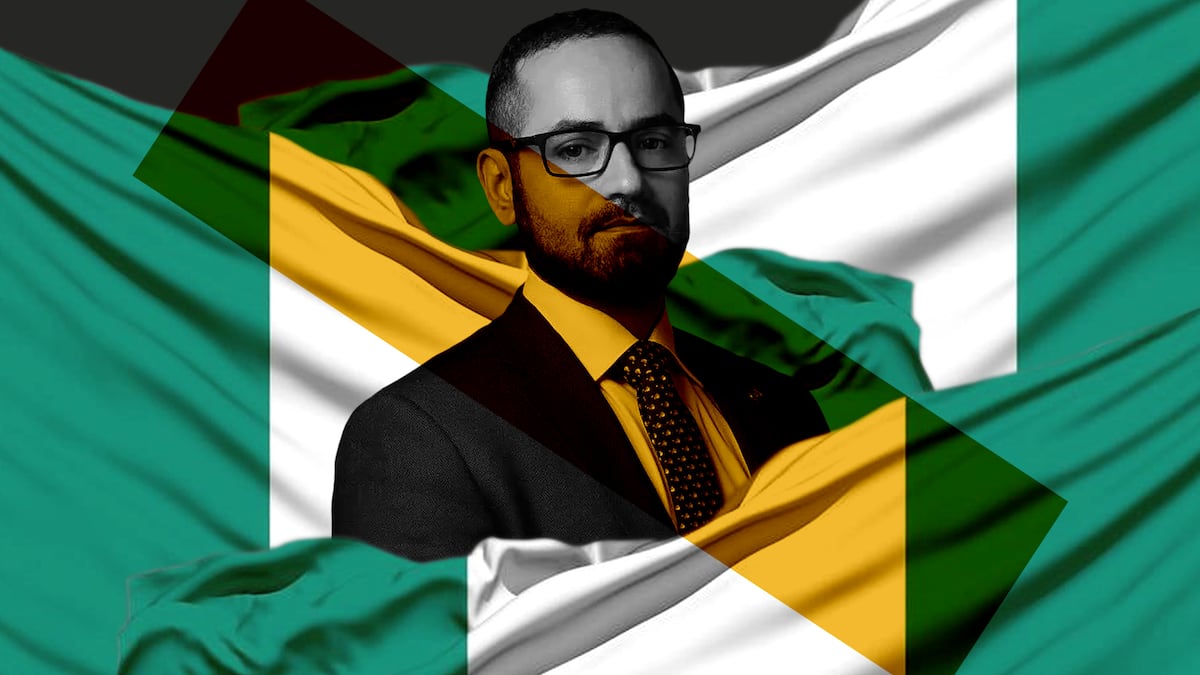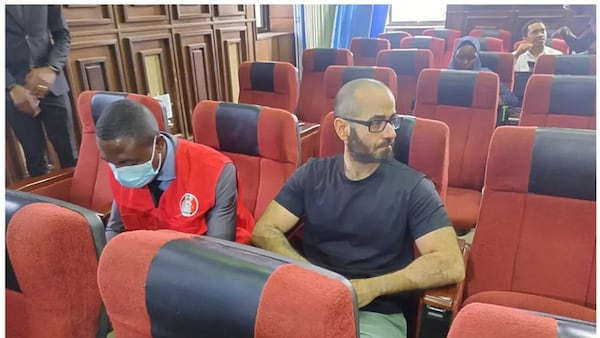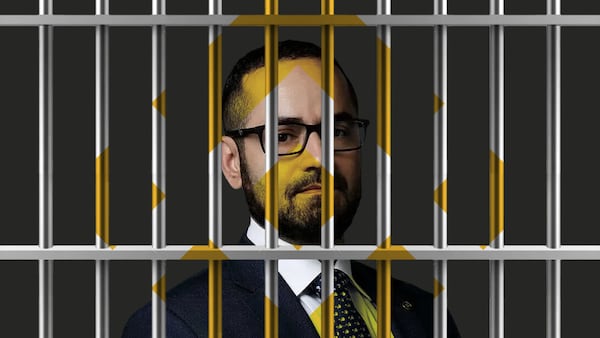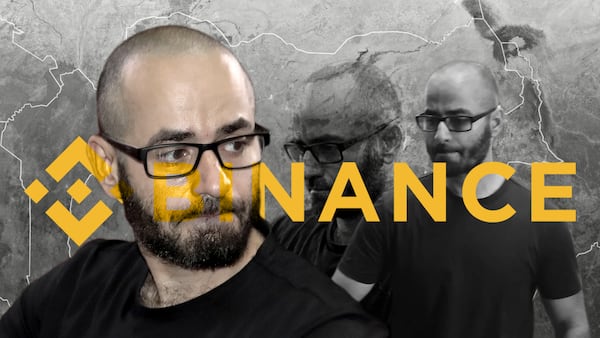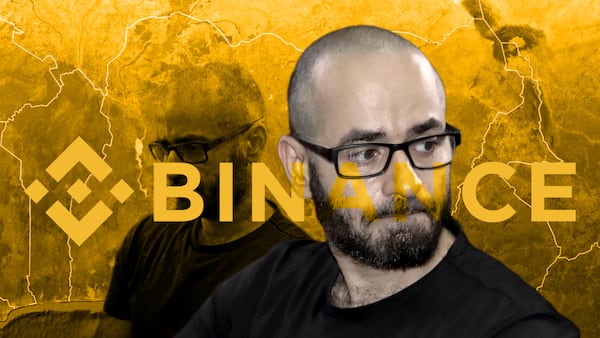- Binance compliance exec Tigran Gambaryan faces trial for money laundering.
- Colleague Nadeem Anjarwalla is wanted by Nigerian authorities.
- Africa's most populous nation has effectively declared war on cryptocurrencies.
The cryptocurrency community is no stranger to drama. In its short history, it has endured all manner of online heists, rug pulls, multi-billion dollar meltdowns, and lost its leading lights — Sam Bankman-Fried, Changpeng Zhao — to felony crime convictions and prison sentences.
But no episode hits the jaw-on-the-floor levels of the narrative unfolding in Nigeria, Africa’s most populous nation.
For the last 10 weeks, Nigerian anti-corruption officials have slammed Binance, the world’s top crypto exchange and one of the industry’s most influential companies, with enforcement actions.
They have accused the company of facilitating $35 million in money laundering transactions for criminals and aiding market manipulators who are destroying the value of the nation’s fiat currency, the naira. They have also accused the company of tax evasion.
The authorities have expanded their investigation to encompass all the peer-to-peer crypto exchanges operating in the nation. For all intents and purposes, Nigeria has declared a legal war on cryptocurrencies.
If that wasn’t enough, Nigeria’s Economic and Financial Crimes Commission, or EFCC, has also charged two Binance executives with the same allegations as their employer: Tigram Gambaryan, Binance’s head of financial crimes compliance and a former special agent with the US Internal Revenue Service, and Nadeem Anjarwalla, a UK lawyer and Binance’s regional head based in Kenya.
Gambaryan, who is imprisoned, will stand trial beginning May 17, even though he has yet to hear from a judge on whether he can post bail.
Anjarwalla managed to elude his guards on March 22 and escape Nigeria.
Binance and the two men have denied the allegations, and Gambaryan’s lawyer has said his client is a “state-sanctioned hostage” of Nigeria’s legal crackdown on the company.
Questions... lots of questions
How did the crisis get to this stage? Why is Gambaryan still incarcerated? And why were he and Anjarwalla detained in the first place?
They are essentially middle managers and not the senior executives who make strategic decisions, Binance told DL News. So why are they being held to answer for Binance’s alleged infractions?
Nigerian officials have consistently declined to comment on the case to DL News.
A US case sets the stage
The story begins not in Abuja, Nigeria’s capital, but rather in Washington.
On November 21, Binance pleaded guilty to violating US banking laws by allowing criminals and terror groups to use its exchange to facilitate illegal transactions and paid a $4.3 billion penalty.
Co-founder and then CEO Changpeng Zhao, who also pleaded guilty, resigned. (On April 30, a judge sentenced Zhao to a four month prison term.)
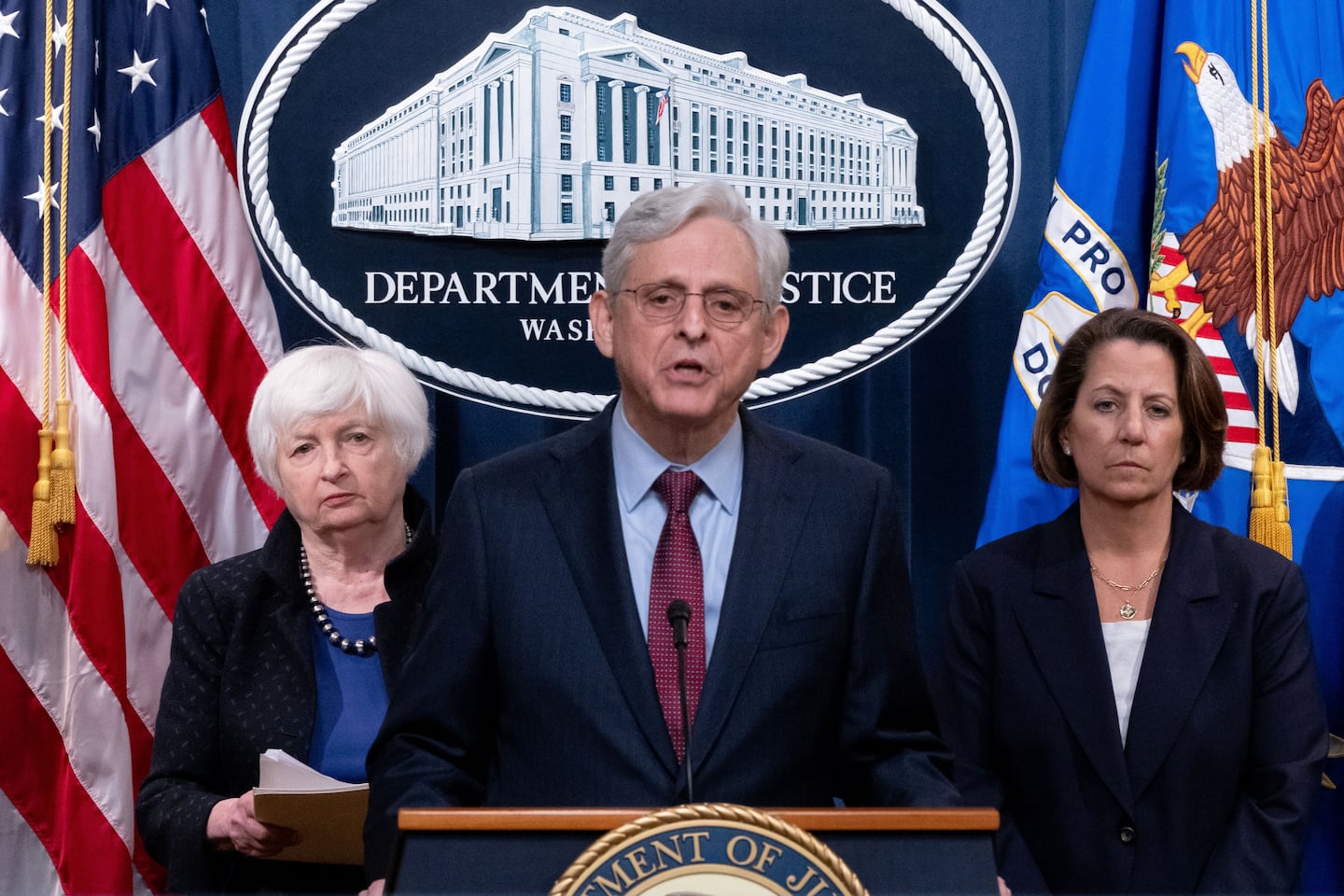
The case exposed the fundamental weaknesses of Binance’s internal controls, and its very model as a free-floating “decentralised” entity that had no need for a global headquarters or many of the other norms and rules that govern global finance.
His successor, Richard Teng, wasted no time in pledging the company would focus on regulatory compliance. But given how rapidly the exchange expanded around the world with little regard for licencing and registration, that was going to a tall order.
And Teng had far less time than he may have imagined.
By the time he took charge, the Philippines was running out of patience with the crypto exchange’s penchant for operating in markets without a licence. Despite repeated warnings from regulators that they would take action, Binance did not get licenced there.
In March, Manila made good on its threat and blocked Binance. Soon enough, Apple and Google were working with officials to boot Binance’s app from the app stores.

Meanwhile, trouble was brewing on the other side of the world. Just as it did in the Philippines, Binance chose not to register in Nigeria and to operate by proxy through a a legion of agents and marketers.
This backfired severely when the naira, Nigeria’s fiat currency, plunged in value compared with the dollar.
Because Binance offered a digital form of the naira, as well as USDT and other widely used stablecoins, it drew the ire of officials who suspected the platform was was enabling market manipulation.
It didn’t take long for them point the finger at crypto trading platforms, especially Binance.
An invitation
Somewhere along the way, the government and the company agreed there should be in-person meetings, so the company dispatched Gambaryan and Anjarwalla to Abuja at the end of February.
No sooner had they arrived for talks than Nigerian officials demanded the two men produce data on Binance’s millions of customers in the nation, according to officials familiar with the probe.
‘These charges against Tigran are meritless. It’s outrageous that he would be remanded in a prison.’
— Binance spokesperson
When the two executives balked, they were detained in a government “guest house” and forced to surrender their passports and mobile phones. Meanwhile, the government formed an inter-agency investigative committee led by the EFCC in collaboration with Nuhu Ribadu, the national security adviser.
The authorities kept the pressure on — they wanted user data. Binance declined to provide it.
The country’s parliament demanded that Teng appear before a legislative committee. Teng did not respond, at least not publicly.
Binance then delisted the naira as one of the supported fiat currencies on its platform and closed all of its services for users in the country. It didn’t matter.
Later in March, Nigerian officials obtained a court order directing Binance to hand over customer details of its users to the EFCC.
On March 22, everything changed. Officials granted Anjarwalla permission to attend prayer services at a mosque in Abuja in observance of Ramadan. Somehow he managed to elude his guards during or after the service and make his way undetected to the airport.
Anjarwalla had kept a second passport, from Kenya, hidden from the authorities. And with it in hand, he boarded a flight and escaped Nigerian airspace before officials could catch up.
Senior officials in the EFCC and state security were embarrassed and furious, people familiar with the matter told DL News. They interrogated the guards about letting their charge slip through their fingers.
Kuje Prison
Unfortunately for Gambaryan, he did not have an alternative means for escaping Nigeria. While he tried in vain to get a new US passport, sources told DL News, the EEFC turned the screws.
On March 29, the EEFC charged Binance and the two executives with laundering $35.4 million in illicit assets on the platform. In conjunction with the case, a court ordered Gambaryan to be incarcerated in Kuje Prison, a facility in Abuja that also houses terrorists.
Binance, which had said virtually nothing publicly since the crisis unfolded, broke its silence.
“We are deeply disappointed that Tigran Gambaryan, who has no decision-making power in the company, continues to be detained,” a company spokesperson told DL News on April 8.
“Tigran has been dedicated to public service and fighting crime for most of his life. These charges against him are meritless. It’s outrageous that he would be remanded in a prison such as Kuje Correctional Facility.”
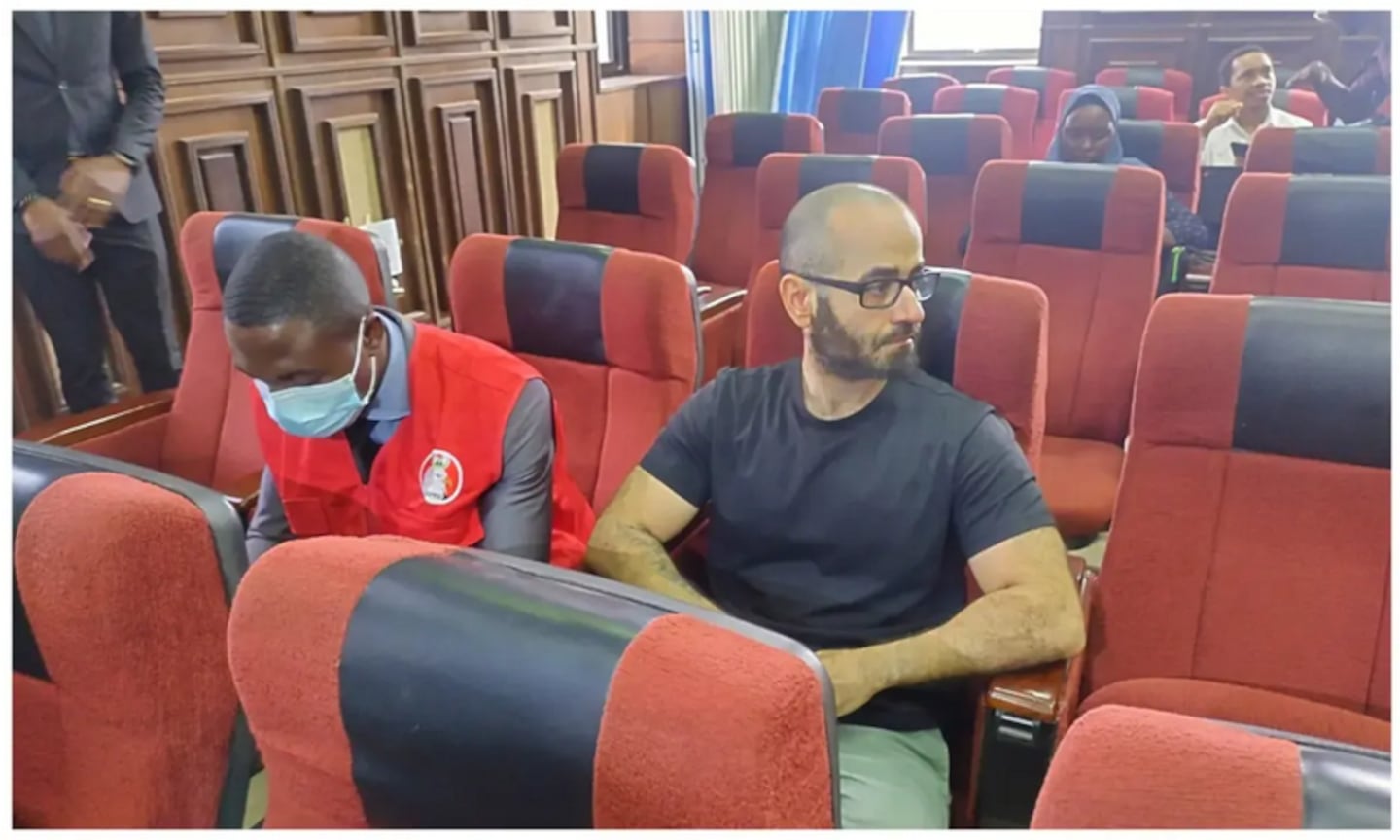
Gambaryan’s situation worsened as the court scheduled his trial to begin in early May, even though he had yet to have a hearing on whether he could secure bail.
Numerous delays due to procedural mistakes by prosecutors delayed his bail hearing until late April, when his lawyer, Mark Mordi, pleaded with the court to release his client on bond.
The court, however, took the matter under advisement until May 17, the date his trial is set to begin. Mordi was outraged by the unorthodox decision.
“This is purely state-sanctioned hostage-taking,” Mordi told the court in proceedings monitored by DL News.
Interpol Red Notice
Nigerian officials had not forgotten about Anjarwalla.
On April 30, Garba Baba Umar, a Nigerian member of Interpol’s executive committee, told a Nigerian news outlet that the agency had traced Anjarwalla to Kenya, though he acknowledged the executive may have moved to another location.
Interpol issued a Red Notice for Anjarwalla, which means Interpol’s 196 member states are obliged to pick him up if he surfaces.
“Wherever he is, he will be smoked out,” Umar said.
Now the focus shifts back to Gambaryan as his trial date approaches on May 17. As it happens, that will be his 40th birthday.
Grief and anxiety
His wife Yuki decried the Nigerian government for its treatment of her husband in a blog post on change.com on April 23.
“I am in a constant state of grief and anxiety, not knowing what other injustice he is going to be put through,” she wrote.
“It is outrageous that Tigran, an innocent man, continues to be kept in a prison cell and the ruling on his bail will not be made until after the trial starts. This is just pure cruelty.”
Osato Avan-Nomayo is our Nigeria-based DeFi correspondent. He covers DeFi and tech. To share tips or information about stories, please contact him at osato@dlnews.com. Edward Robinson is DL News’ story editor. Have a tip? Contact him at ed@dlnews.com.
